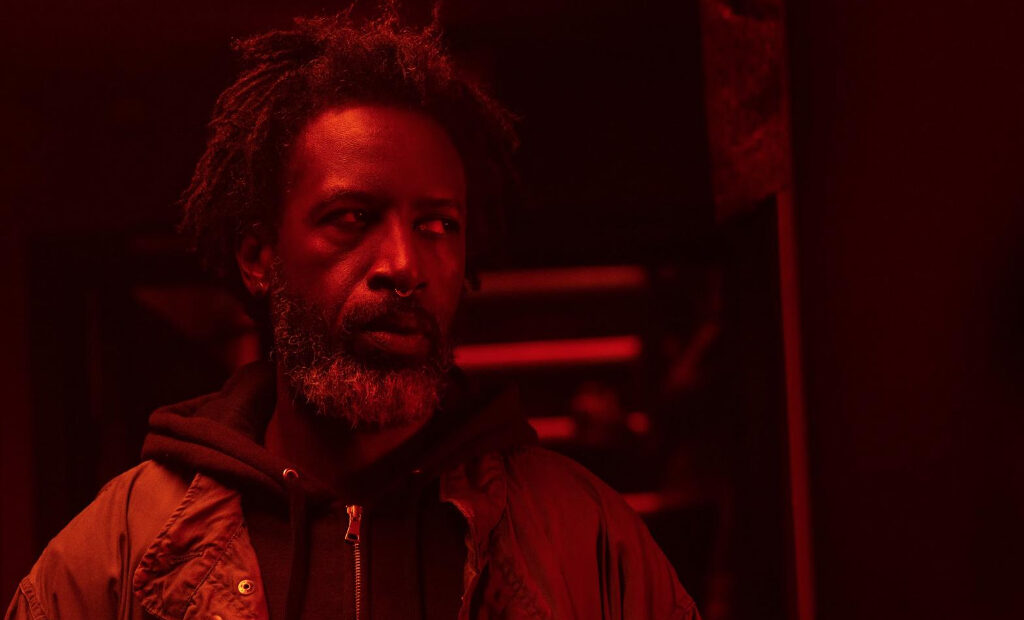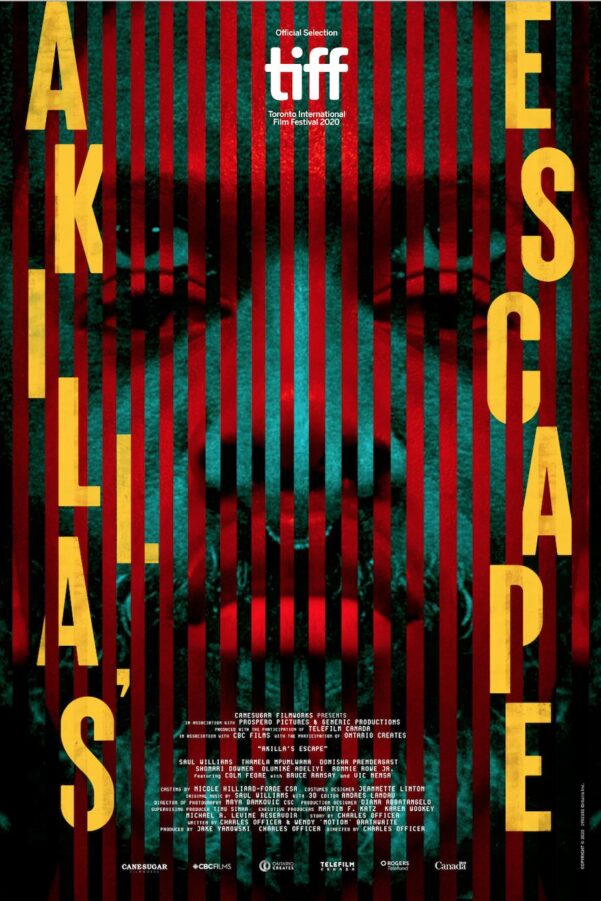Akilla’s Escape

Akilla’s Escape uses an illicit Toronto cannabis industry transitioning to legitimacy as the stage for its arcs of violent, lost men seeking redemption; a playground on the cusp of hearing the tolling bell, à la Sopranos (“lately I’m getting the feeling that I came in at the end. The best is over”). The mournful, almost ghostly feeling associated with hanging around for the death of the party characterises the contemplative texture of this feature.
Charles Officer’s film follows the titular Akilla through two parallel narratives. One sees a 15-year-old Akilla (Thamela Mpumlwana) in 1995 New York taken in for questioning following the death of his criminal kingpin father (Ronnie Rowe), a timeline which has its own framed flashbacks leading to the incident in question. The other, psychologically and emotionally complemented and informed by the 1995 timeline, sees an adult Akilla (Saul Williams) in 2020 Toronto, interrupt an armed robbery on his boss’ dispensary. There he crosses paths with Shepperd (significantly also portrayed by Mpumlwana), an out-of-place boy onto whom Akilla projects the traumatic aftershocks of his own premature exposure to violence and criminality, making it his mission to redeem himself through the protection of Shepperd, who is now pursued by “the kinds of people you don’t want looking for you”.
Akilla’s Escape concerns itself with generational trauma and cycles of violence, using as its focus communities which fled political violence in 1980s and 90s Jamaica. Its scope is therefore broad for a 90-minute gangland tale and finds Officer leaning into a breathier, more self-possessed tone than may be expected in order to give its themes the space to make an impact. While it is a pace that largely succeeds, the film can sometimes feel like a tug of war between this and the fast-paced momentum that audiences have come to expect from their short, snappy crime thrillers, with Williams’s brilliant original score, teeming with a nocturnal, urban anxiety, signposting an Uncut Gems-style racketing up of tension which never manifests (although, juxtaposed with laid back reggae needle drops, is highly effective as a mood builder).
As well as penning the score alongside Robert Del Naja of Massive Attack, Williams’s performance is crucial to the success of the central character study. It is a classic crime protagonist’s performance; cool, cunning, lethal and honourable, at least as honourable as such a life can be. The weight and viscosity of a heritage of violence and unrest are filtered through his performance, crystalising it into something lucid, concise and emotionally tangible.
Matthew McMillan
Akilla’s Escape is released nationwide on 26th August 2022.
Watch the trailer for Akilla’s Escape here:

























Facebook
Twitter
Instagram
YouTube
RSS